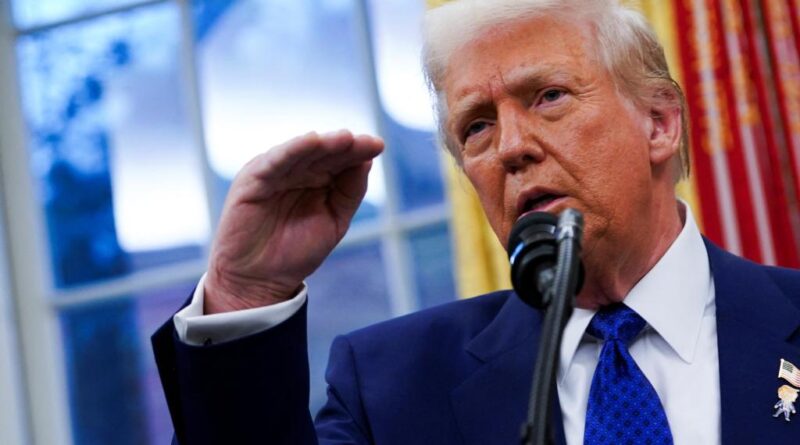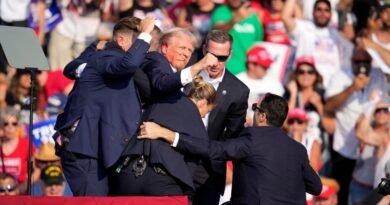Trust in Your All-Star Team

If you think that President Trump took over with “a robust economy,” as a recent NPR headline suggested, it’s time to reconsider. He has a significant challenge ahead.
For instance, the monthly inflation rate has surged to a 17-month peak in the closing month of the Biden administration. When you factor in a staggering $36 trillion national debt, a labor market that’s proving to be much weaker than previously thought, and declining federal finances, it’s evident that Trump is facing a substantial obstacle.
To fulfill his promise of a new “Golden Age,” Trump will need to leverage the practical knowledge and skills of his team while steering clear of the mistakes made by many past leaders.
Addressing the ongoing cost-of-living crisis will require a comprehensive government strategy, as the entire federal system played a role in creating this problem. America must ramp up energy production, reduce taxes and regulatory hurdles, renegotiate international trade agreements, and significantly cut spending in Washington, D.C.
There is significant alignment in these objectives. Lowering taxes and relieving cumbersome regulations will foster a more favorable environment for American energy producers, decrease costs, and enhance production levels. Opening up federal lands for exploration and extraction will further increase available supply.
The U.S. is also ideally suited to export large quantities of energy around the globe. With a cost advantage of four to one over Europe in natural gas and natural-gas-derived chemicals, there’s a substantial opportunity to boost exports, narrow the trade deficit, and enhance both economic growth and national income.
Enhancing energy exports is merely one aspect of how Trump must address the current skewed international trade environment. Tariffs will likely play a role, but it’s essential to apply them wisely.
A historical example of poor tariff application is President Hoover. The bipartisan Smoot-Hawley tariff he endorsed was a reckless, non-strategic decision that aggravated the Great Depression.
In contrast, President McKinley—whom Trump often honors—implemented a strategic tariff policy that emphasized reciprocity, which played a vital role in ushering in America’s Golden Age with booming production, revenues, and innovation.
Trump recognizes that he can use the purchasing power of American consumers as leverage in international negotiations to secure better deals for our workforce. The ability to discern when to act decisively and when to hold back can differentiate between a McKinley and a Hoover.
He should also learn from the mistakes of past presidents like Clinton and Bush, who signed trade agreements that ultimately weakened U.S. industry. Moreover, he needs to address the misuse of his signature trade agreement, the US-Mexico-Canada-Agreement (USMCA).
Mexico and Canada have permitted countries like China to exploit the USMCA by rerouting subsidized goods through their territories before distributing them in the U.S., undermining the competitive position of American workers.
To rectify international trade, a balanced approach is necessary, combining tariffs as a penalty for companies that outsource production and jobs overseas, alongside incentives in the form of lower taxes and reduced bureaucratic obstacles, making America the premier location for production, employment, and investment.
With a national debt of $36 trillion, which increases by over $2 trillion annually, the burden of interest payments exceeds $1.2 trillion. If this debt and the spending that drives it are not curtailed, the subsequent inflation will make Biden’s presidency seem like a leisurely stroll through Central Park.
Creating a more investment-friendly environment will also necessitate tax reductions, which in turn will require significant cuts to federal spending. As Elon Musk noted during a recent meeting in the Oval Office, this is non-negotiable; it’s essential for preventing a catastrophic financial collapse of the federal government.
Fortunately, Trump boasts invaluable allies, including Musk at the Department of Government Efficiency, Secretary Scott Bessent at Treasury, and JD Vance as Vice President. Managing the passage of cost-reducing legislation through Congress for Trump to approve will be no small feat, but these individuals are exceptionally suited for the challenge.
Trump has assembled an exceptional team—he just needs to leverage their talents effectively.
E.J. Antoni is a public finance economist, the Richard F. Aster fellow at the Heritage Foundation, and a senior fellow at Unleash Prosperity.



